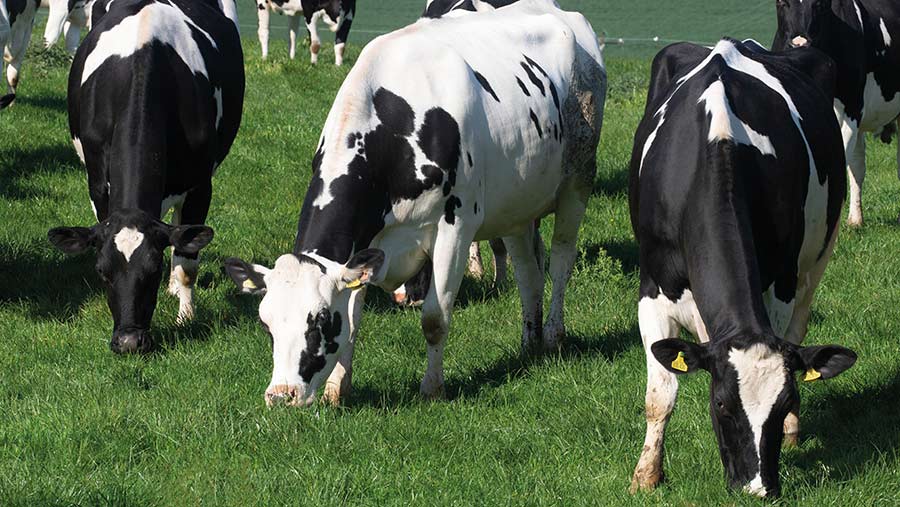Arla to sell on-farm environmental gains to retailers
 © Tim Scrivener
© Tim Scrivener Arla has reached commercial agreements with some of its customers, including Aldi, Asda, Morrisons and Starbucks, to share on-farm climate data to help these businesses reduce their Scope 3 emissions.
The UK’s largest dairy co-operative currently pays its farmer-members for making specific environmental improvements through its Sustainability Incentive Model.
This has allowed it to collect data showing reductions in emissions from a combined milk pool of more than 1.1bn litres.
See also: Arla to pay farmers for environmental sustainability from 2023
Arla’s Customer Sustainability Programme will provide the companies which invest in it with claimable carbon dioxide reductions and customised, accurate on-farm data on emissions on a kg/milk basis.
Peter Giortz-Carlsen, executive vice-president of Arla Foods Europe, told Farmers Weekly that the incentive model and climate checks have enabled Arla to take a step further and partner up with its customers to achieve their Scope 3 reductions.
Mr Giortz-Carlsen said it shows that the work the farmers are doing on farm does pay off and it’s a new way of creating value for the milk.
Almost 100% of Arla members signed up to the model when it was introduced last year.
It pays farmers up to 2.4 euro cents/kg (2.2p/litre) related to how well the farmers score against a number of sustainability targets.
“We have now agreed with our customers that we will give them access to more accurate data with faster reductions that will have a value for them,” said Mr Giortz-Carlsen.
He added that Arla is working towards an on-farm emissions reduction of 30% by 2030, and that they are on the right trajectory to do that, based on a 2015 baseline.
Selling carbon on farm
When pushed on whether this would affect Arla farmers’ ability to sell their own carbon reductions, Mr Giortz-Carlsen said you cannot hand over the reductions to one and then sell to another, you can only do it once.
“If a farmer sells their carbon, then I think we cannot do this, and we will take account of that. This is a very robust system, which gives our customers transparency and also strong governance around what we are doing.
“Basically, we are creating a carbon accounting system that is very transparent, and we can share that with customers.
“But if a farmer decides to sell their carbon dioxide reduction to somebody else, then of course we cannot account for this and we will take it out,” said Mr Giortz-Carlsen.